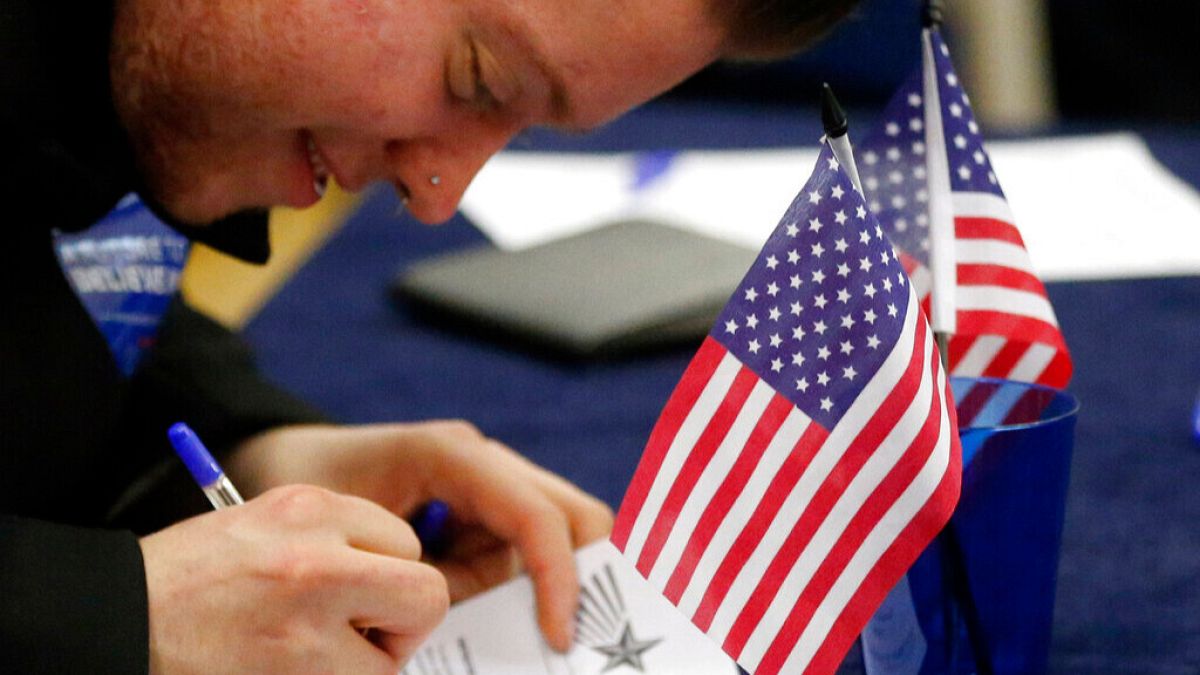The upcoming US presidential election is already expected to have razor-thin margins in swing states, with candidates Kamala Harris and Donald Trump polling within the margin of error. However, the impact of overseas American voters remains a mystery. An estimated 2.8 million Americans living abroad are eligible to cast their votes, and depending on their states of origin, they could potentially sway the outcome of the election. Despite lower turnout rates among US voters overseas compared to the general population, there is still a good level of motivation among this group to participate in the political process.
James McCann, a political science professor, notes that US citizens abroad tend to be well-resourced and interested in American politics. However, one challenge is the lack of investment by political parties in engaging voters overseas, with only the Democratic party having a presence abroad. This lack of organizational commitment makes it difficult to mobilize this voting bloc. Despite this challenge, motivated voters like Sophia from Berlin still feel empowered to make a difference in their home states, such as Florida, where important issues like abortion access are on the ballot.
Democrats Abroad, a global organization for American expatriates, faces obstacles in reaching overseas voters due to the absence of a master list of Americans living abroad. Nonetheless, they employ various outreach strategies, including social media campaigns and setting up outreach booths at local markets. Both Democratic candidate Harris and Republican candidate Trump have been actively engaging with US voters abroad, acknowledging the unique challenges they face and proposing policy solutions to address their concerns.
The impact of the overseas vote could potentially be significant in the upcoming election, especially with Harris and Trump polling so closely in swing states. Even a small increase in turnout from overseas voters could have a substantial impact on the outcome of the election, particularly if these votes are concentrated in key battleground states. McCann emphasizes that despite their relatively small numbers compared to the overall electorate, overseas American voters, like other small voter segments, could make a crucial difference in determining the election’s outcome.
In conclusion, the millions of Americans living abroad have the potential to influence the upcoming US presidential election, especially in swing states with tight margins. Despite challenges in organizing and mobilizing this voting bloc, the motivation and interest among overseas American voters remain strong. With both political parties recognizing the importance of engaging this group, efforts are being made to increase voter turnout and ensure that Americans living abroad have the opportunity to make their voices heard in this pivotal election. The impact of the overseas vote could prove to be decisive in determining the outcome of this closely contested election.











